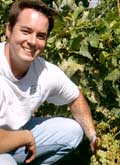Steal This Post
Another popular writer has fallen from grace amid strong evidence of plagiarism. This time it's Kaavya Viswanathan (try saying that five times fast), a 19-year-old Harvard student and author of a popular chick lit book called "How Opal Mehta Got Kissed, Got Wild, And Got A Life". I can't say that I'd ever heard of the author or the book before this little scandal broke, but then I don't actually know what the definition of "chick lit" is, either.
The thing I always wonder about plagiarists is not why they do it (duh, because it's easier than coming up with stuff on your own) but why they always insist on lame half-denials. When faced with passages from their own work that are obviously copied, sometimes even word-for-word, from a previous source, they always offer the same basic lame excuse: I didn't do it on purpose. Every time a Jayson Blair or a Doris Kearns Goodwin gets caught copying someone else they always come up with some tortured explanation as to how it isn't really their fault. Usually this amounts to something along the lines of "although plagiarism did take place, it was all pretty much an accident." Viswanathan's ridiculous excuse is typical; while she admits that portions of her book are practically identical to portions of two prior novels by Megan McCafferty, she insists that the copying was "unintentional and unconscious", and that "I wasn't aware of how much I may have internalized Ms. McCafferty's words." Yeah, internalized them the way a guy robbing a liquor store internalizes a wad of $20 bills. I guess that's still better than the late Stephen Ambrose, who partially blamed his plagiarism on his children.
Just once I'd like to hear a plagiarist come out and say "Look, I read something that someone else had written that was beautiful and insightful, and since I couldn't come up with anything that was as good on my own I thought I would steal it. I figured chances were that no one would catch on, and that if anyone did they would probably figure it wasn't worth making a bid deal about it." If an author were to say this, at least they'd just be a thief, not a thief and a liar.
But for whatever reason, writers can never seem to bring themselves to fully admit their culpability. I suspect that it's because writers, like all artists, don't produce shoes or furniture or pork bellies or anything else of material, quantifiable value. Writers trade in revelation, in expressing the innermost fears and yearnings of the human soul. To admit that their words are not their own would be tantamount to admitting that they are not fully capable on their own of performing the single function that gives their professional life meaning. In other words, it would be tantamount to admitting that they are professional frauds. No wonder it's so hard for them to come clean.
The thing I always wonder about plagiarists is not why they do it (duh, because it's easier than coming up with stuff on your own) but why they always insist on lame half-denials. When faced with passages from their own work that are obviously copied, sometimes even word-for-word, from a previous source, they always offer the same basic lame excuse: I didn't do it on purpose. Every time a Jayson Blair or a Doris Kearns Goodwin gets caught copying someone else they always come up with some tortured explanation as to how it isn't really their fault. Usually this amounts to something along the lines of "although plagiarism did take place, it was all pretty much an accident." Viswanathan's ridiculous excuse is typical; while she admits that portions of her book are practically identical to portions of two prior novels by Megan McCafferty, she insists that the copying was "unintentional and unconscious", and that "I wasn't aware of how much I may have internalized Ms. McCafferty's words." Yeah, internalized them the way a guy robbing a liquor store internalizes a wad of $20 bills. I guess that's still better than the late Stephen Ambrose, who partially blamed his plagiarism on his children.
Just once I'd like to hear a plagiarist come out and say "Look, I read something that someone else had written that was beautiful and insightful, and since I couldn't come up with anything that was as good on my own I thought I would steal it. I figured chances were that no one would catch on, and that if anyone did they would probably figure it wasn't worth making a bid deal about it." If an author were to say this, at least they'd just be a thief, not a thief and a liar.
But for whatever reason, writers can never seem to bring themselves to fully admit their culpability. I suspect that it's because writers, like all artists, don't produce shoes or furniture or pork bellies or anything else of material, quantifiable value. Writers trade in revelation, in expressing the innermost fears and yearnings of the human soul. To admit that their words are not their own would be tantamount to admitting that they are not fully capable on their own of performing the single function that gives their professional life meaning. In other words, it would be tantamount to admitting that they are professional frauds. No wonder it's so hard for them to come clean.






2 Comments:
I seriously contemplated posting this entire entry on my site...but then decided not to :)
I really don't understand the need to steal something someone else put the time in to do. Yes, it is a shortcut but in the end...is it worth it?
i just coppied and pasted this posting on my blog and said that i wrote it.
Post a Comment
<< Home